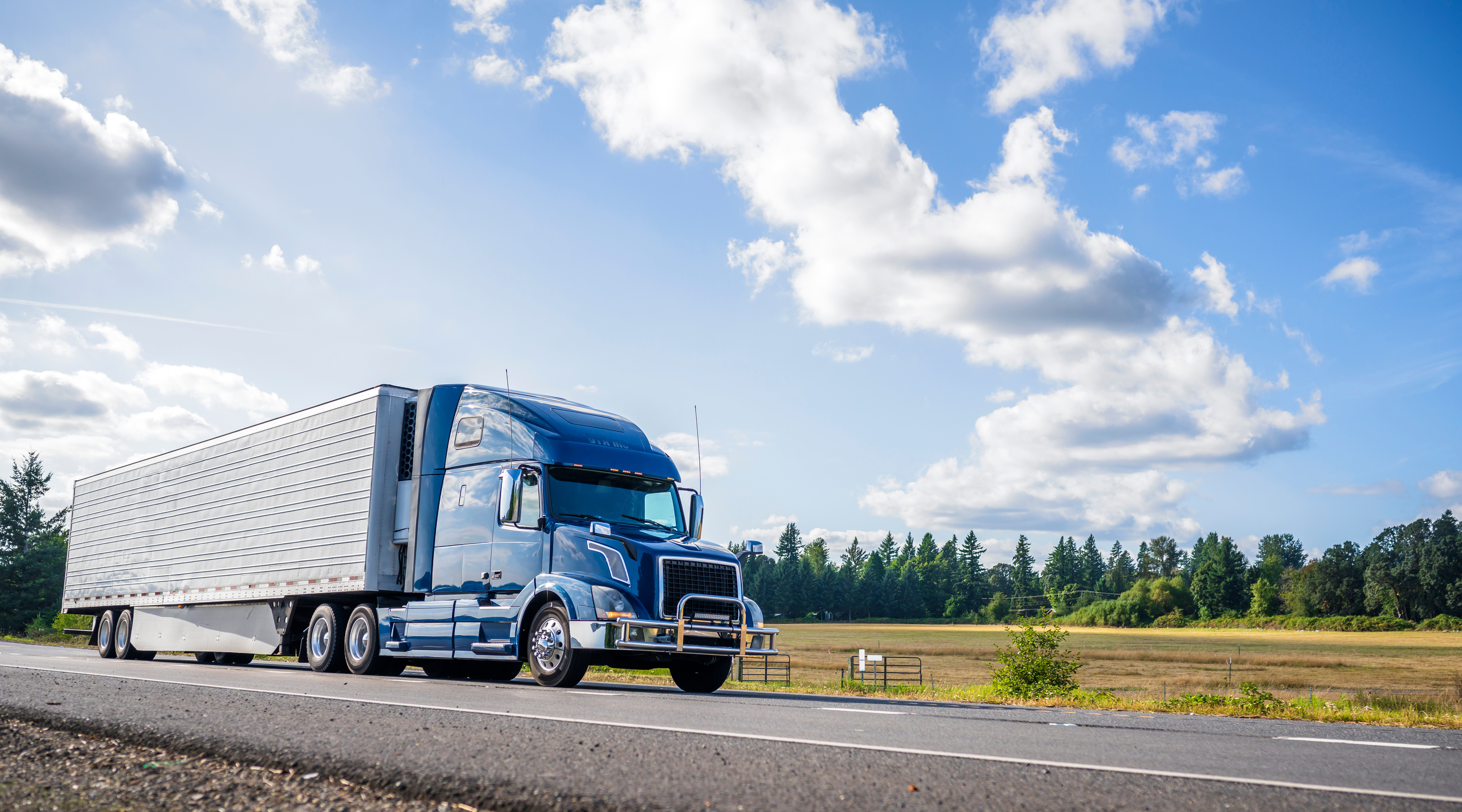Understanding Virginia Trucking Regulations
When you drive a car, you’re in control of an object that can weigh up to 5,000 pounds. That is two and a half tons of steel that you need to maintain at all times. Driving becomes a matter of routine, and most trips take place without incident. Now, consider being a truck driver who is in control of 80,000 pounds of steel and cargo. That adds pressure on the driver to remain alert and obey the many state and federal truck regulations that are meant to keep everyone safe on the road.
If you are involved in an accident with a commercial vehicle, it could be because the driver or those tasked with maintaining the truck did not follow the Virginia truck regulations for size, weight, and equipment requirements. The Federal Motor Carrier Safety Administration (FMCSA) also has regulations covering a wide range of topics. Truck drivers must also be in compliance with those regulations.
Failure to comply with these regulations can reinforce the issue of negligence as being the cause of an accident. When that is established, that can support your claim and request for compensation. That is why every driver must understand the basic truck regulations.

Licensing Requirements
Before a truck driver can get behind the rig of any commercial vehicle, they need to obtain a commercial driver’s license (CDL). These are the following three classes of CDLs:
- Class A: Allows a driver to operate vehicles with a gross combined weight rating of 26,001 pounds or more.
- Class B: Allows a driver to operate a single vehicle with a gross vehicle weight rating (GVWR) of 26,001 pounds or more or a single vehicle with a GVWR of 26,001 pounds or more towing another vehicle with a GVWR of 10,000 pounds or less.
- Class C: Allows a driver to operate any vehicle not included in Class A or B that carries hazardous materials requiring a placard or that carries 16 or more passengers.
When applying for a license, a prospective driver must designate the type of license class they intend to utilize. Regardless of the class, basic CDL requirements apply to every applicant. The following are the requirements to be licensed:
- Drivers must be at least 18 years old for an intrastate (operating only within Virginia) CDL and 21 years old for an interstate CDL.
- Applicants must hold a commercial learner’s permit (CLP) for at least 14 days and complete the Entry Level Driver Training course. A CLP allows the holder to operate a commercial vehicle with a licensed driver present.
- Applicants must pass the CDL skills tests, which include a vision screening, CDL knowledge exams, and a CDL road skills test.
- Applicants must present a valid Virginia license or ID and one federally required document. Those IDs can be passports, birth certificates, or certificates of citizenship. If the driver has recently moved to Virginia, they must present additional proof of identity, including verification of Virginia residency and Social Security number.
- All CDL and CLP applicants must undergo and pass a medical examination and meet one of the four certifications: excepted intrastate, excepted interstate, non-excepted intrastate, or non-excepted interstate.
- Those who have not previously held a CDL must pass a state-approved Entry Level Driver Training Program and hold a CLP for at least 14 days.
- To get a Hazardous Materials Endorsement (HME), drivers must complete the Entry Level Driver Training Program, pass the HAZMAT knowledge exam, and undergo a background check.
The company that hires the trucker should review all of these license requirements. If that company does not perform due diligence and its driver gets into an accident, it could also be held partially responsible for the accident.
Hours of Service Regulations
How long a truck driver should be behind the wheel of their rig has a lot to do with preventing drowsy driving. Virginia truck regulations mandate the same specific hours of service that FMCSA has established. Those regulations are as follows:
- 11-hour driving limit: After driving for 11 hours, the driver must take 10 consecutive hours off duty before they can drive again.
- 14-hour limit: After being on duty (both driving and non-driving tasks combined) for 14 hours, the driver cannot drive again until they’ve had 10 consecutive hours off duty. Importantly, any off-duty breaks taken during this 14-hour window don’t extend or pause the 14-hour limit.
- Rest breaks: After 8 hours of driving, truck drivers must take a 30-minute break.
- Weekly limits: The weekly limits include not driving for more than 60 hours in 7 consecutive days or 70 hours in 8 consecutive days.
A truck driver must also keep track of his service hours in an electronic log. Those logs can be used as evidence in a truck accident claim and establish a pattern of neglect when it comes to working too many hours.
Drug and Alcohol Testing
According to the Virginia Department of Motor Vehicles, 6,979 alcohol-related crashes in 2023 resulted in 4,400 injuries and 293 fatalities. Driving under the influence of drugs or alcohol means you lose control of the vehicle, and that is especially dangerous when the vehicle is an 18-wheeler or bus.
That is why truck drivers in Virginia are required to undergo drug and alcohol testing before they are hired. They must also submit to testing after any type of accident. Truck drivers are also subject to random drug and alcohol testing throughout the year.

Schedule a Free Consultation
Work with a team of attorneys who are knowledgeable in Virginia trucking regulations.
Insurance Requirements Outlined in Virginia Truck Regulations
Virginia requires truck drivers to carry the same liability insurance with the following minimum coverage as every other driver:
- $50,000 for bodily injury or death of one person.
- $100,000 for bodily injury or death of two or more people.
- $25,000 for property damage.
In addition to the minimum liability for the driver, a trucking company is required to carry higher minimums. For instance, freight trucks or tractor-trailers traveling on the interstate must carry a minimum of $750,000 in coverage. If a company is transporting hazardous materials, they need to have a minimum of $5,000,000 in liability insurance.
Liability insurance is in place to provide financial protection to victims of an accident involving a commercial vehicle.
Commercial Vehicle Maintenance and Inspection in Virginia
It is a good idea to follow your car’s manufacturer’s recommendations for maintenance upkeep. Those recommendations are intended to keep your car running smoothly for a long time. However, there is no law against you not getting an oil change; it might just affect your car. That is not the same for truck drivers.
Any commercial vehicle that is used to transport cargo must be regularly inspected and maintained according to the standards set forth by the FMCSA. The Virginia DMV provides a list of items to be inspected that include the following:
- Brakes
- Tires
- Lights
- Steering
- Suspension
- Exhaust system
- Fuel system
- Engine
Truck drivers are responsible for ensuring that their vehicles are properly maintained. In addition to the service hours logs, a commercial truck driver needs to keep a maintenance log and have their vehicles inspected regularly by a qualified mechanic. Most trucking companies require truck drivers to visually inspect their rigs before and after each trip.
Read Our Latest News
Virginia Cargo Securement Rules for Trucks
Freight needs to be properly secured inside a truck. According to Virginia Code § 46.2-1156, trucks must be loaded in a way “that keeps their contents from dropping, sifting, leaking, or otherwise escaping when moving on any highway.” There are exceptions for trucks that transport forest products, poultry, or livestock. Additionally, there are requirements that trailers that carry gravel, sand, coal, or other loose materials need to have those cargos covered.
Applying the Regulations
Truck drivers are under a lot of scrutiny between the inspections, the service logs, and the testing. That is all designed to minimize the risk of an accident. If you are involved in an accident with a commercial vehicle, you’ll benefit from speaking with Curcio Law.
We are a team of experienced attorneys with a track record of success helping clients recover from devastating accidents with big rigs – especially when they violated Virginia truck regulations. We know the laws, and we know who to hold responsible. Call to set up an appointment to talk about what happened.
